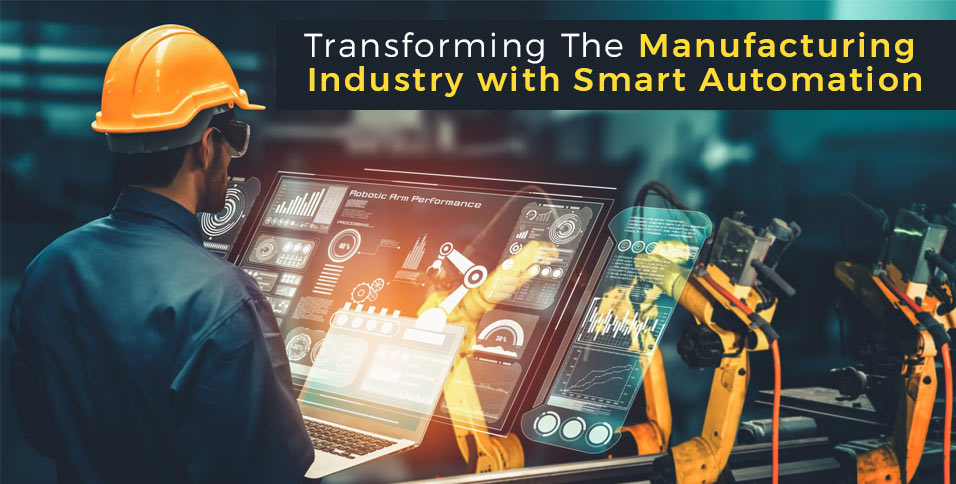Smart automation is revolutionizing the manufacturing industry by integrating advanced technologies and innovative processes. This transformation is essential for enhancing efficiency, reducing costs and improving overall product quality. Explore how these changes are shaping the manufacturing landscape.
In recent years, the manufacturing industry has witnessed significant advancements due to the adoption of smart techniques. By leveraging cutting-edge technologies such as artificial intelligence, IoT and robotics, manufacturers are redefining traditional production methods. These innovations not only streamline operations but also pave the way for sustainable and efficient manufacturing practices.
The Impact of Automation
Automation has become a cornerstone in modern manufacturing. By incorporating automated systems, manufacturers can significantly reduce human error and improve production speed. Additionally, automation allows for more precise control over production processes, leading to higher-quality outputs and reduced waste. For example, if you had to move pallets to transport workpieces between processes in your manufacturing unit, having a pallet conveyor would come in handy, as it would equip you with the necessary automation to do this task. A pallet conveyor therefore becomes a crucial step in improving workflow and enhancing the manufacturing team’s operations.
With automated systems in place, manufacturers can focus on optimizing all aspects of their operations. For instance, predictive maintenance powered by AI can foresee potential equipment failures before they occur, minimizing downtime and costly repairs, just like how the above-mentioned pallet conveyor improves processes. Automation also facilitates real-time data collection and analysis, enabling better decision-making and continuous improvement in production lines.
The implementation of collaborative robots or cobots, is another significant advancement in manufacturing automation. These robots are meant to work alongside human workers, combining the precision and tirelessness of machines with the adaptability and problem-solving skills of humans. Cobots can handle repetitive tasks, freeing up human workers to focus on more complex and creative aspects of production. This symbiotic relationship between humans and machines not only boosts productivity but also improves workplace safety by reducing the risk of injuries associated with repetitive motions or handling heavy components. It is something that signifies the Fifth Industrial Revolution, which is the merging of humans and technology.
Integrating IoT in Production
The integration of IoT (Internet of Things) technology plays a pivotal role in transforming manufacturing. IoT devices provide real-time insights into every aspect of the production process. Sensors embedded in machinery collect data that helps monitor performance and identify inefficiencies. This collected data can be used to enhance operational efficiency and ensure that production remains on schedule.
Moreover, IoT technology fosters enhanced connectivity within manufacturing plants. Machines communicate with each other seamlessly, leading to a more cohesive and streamlined production environment. This interconnected system improves overall productivity and product quality. As a result, manufacturers can better meet consumer demands and maintain a competitive edge in the market, which is always welcome.
Sustainable Manufacturing Practices
Sustainability is becoming increasingly important in the manufacturing industry. Smart manufacturing supports sustainable practices by optimizing resource usage and minimizing environmental impact. For example, energy-efficient machinery reduces power consumption while maintaining high levels of productivity. Additionally, waste reduction techniques such as recycling materials contribute to more eco-friendly production processes.
Adopting sustainable practices not only benefits the environment but also improves a company’s reputation among consumers who prioritize eco-conscious brands. By investing in green technologies and practices, manufacturers demonstrate their commitment to corporate social responsibility (CSR) and a sustainable future. This commitment can lead to increased customer loyalty and potentially higher sales.
The Role of Artificial Intelligence
Artificial intelligence (AI) is another transformative force in manufacturing. AI-driven systems can analyze vast amounts of data to optimize production processes and forecast trends. Machine learning algorithms help identify patterns that human analysts might miss, enabling more efficient resource allocation and process improvements.
Furthermore, AI enhances quality control by detecting defects at an early stage, ensuring that only products meeting stringent standards reach consumers. This leads to reduced recalls and higher customer satisfaction rates. The integration of AI into smart manufacturing ultimately drives innovation and positions companies at the forefront of technological advancements within the industry.















